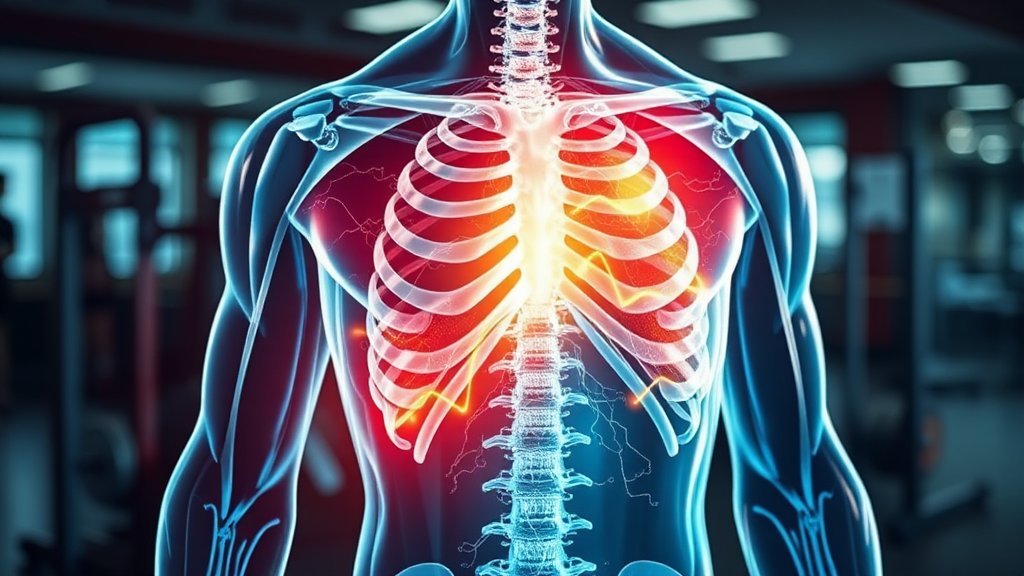Whey Protein and Muscle Recovery: Unlocking the Secrets to Faster Muscle Repair and Growth
As an athlete or fitness enthusiast, you’re well aware of the importance of proper muscle recovery after a workout. While a good workout routine is crucial for muscle growth and repair, it’s equally essential to provide your body with the necessary nutrients to aid in the recovery process. This is where whey protein comes into play. But how exactly does whey protein help with muscle recovery, and is it truly the best protein for muscle repair and growth? In this comprehensive article, we’ll delve into the world of whey protein and muscle recovery, exploring the science behind its benefits and providing you with actionable tips on how to incorporate this powerful supplement into your fitness routine.
The Science Behind Whey Protein and Muscle Recovery
Whey protein is a type of protein derived from milk, specifically from the liquid part of milk that separates during cheese production. It’s a complete protein, meaning it contains all nine essential amino acids (EAAs) that the human body cannot produce on its own. These EAAs play a critical role in muscle growth and repair, making whey protein an ideal supplement for athletes and individuals looking to support muscle recovery.
What Sets Whey Protein Apart
Whey protein’s unique characteristics make it an excellent choice for muscle recovery. It contains all the essential amino acids necessary for muscle growth and repair, including leucine, isoleucine, and valine. Additionally, whey protein is rich in branched-chain amino acids (BCAAs), which help reduce muscle soreness and fatigue.
The Benefits of BCAAs in Whey Protein
BCAAs are a group of three essential amino acids: leucine, isoleucine, and valine. These amino acids are particularly effective at reducing muscle soreness and fatigue. Whey protein is an excellent source of BCAAs, containing approximately 10-15 grams of BCAAs per 30-gram serving.
The Role of Leucine in Muscle Recovery
Leucine is an EAA that plays a critical role in muscle growth and repair. It’s the primary amino acid responsible for stimulating muscle protein synthesis (MPS), the process by which your body builds new muscle protein to repair and grow muscle tissue. Leucine has been shown to increase MPS by 30-50% compared to consuming a meal without leucine.
Muscle Damage and Inflammation
When you engage in intense physical activity, your muscles undergo micro-tears, which can lead to muscle soreness and fatigue. This is known as delayed onset muscle soreness (DOMS). Whey protein helps to repair these micro-tears by providing your body with the necessary building blocks for muscle growth and repair.
How Whey Protein Helps with Muscle Recovery
Whey protein helps with muscle recovery by:
- Reducing muscle damage and inflammation
- Promoting muscle protein synthesis (MPS)
- Enhancing muscle function and performance
The Importance of Timing
Timing is crucial when it comes to consuming whey protein for muscle recovery. Consuming whey protein within 30-60 minutes after a workout can help support muscle recovery and growth.
The Benefits of Whey Protein for Different Populations
Whey protein is not just beneficial for athletes and bodybuilders, but also for individuals looking to lose weight or improve overall health.
- Weight Loss: Whey protein can help with weight loss by promoting satiety and reducing muscle loss during caloric restriction.
- Muscle Growth and Repair: Whey protein is essential for muscle growth and repair, making it ideal for athletes and bodybuilders.
- Improved Overall Health: Whey protein contains essential amino acids and BCAAs, which can help improve overall health and reduce inflammation.
Comparing Whey Protein to Other Protein Supplements
With so many protein supplements available, it’s natural to wonder whether whey protein is truly the best option. Here’s a brief comparison with other popular protein supplements:
Best Practices for Consuming Whey Protein
When it comes to consuming whey protein, timing and dosage are crucial. Here are some best practices to keep in mind:
- Post-Workout Recovery: Consume 20-30 grams of whey protein within 30-60 minutes after a workout to support muscle recovery and growth.
- Daily Intake: Aim for 1.2-1.6 grams of whey protein per kilogram of body weight per day to support muscle growth and repair.
Common Misconceptions About Whey Protein
There are several common misconceptions about whey protein that can affect its effectiveness. Here are a few:
- Myth: Whey Protein is Only for Bodybuilders: Whey protein is not just for bodybuilders, but also for individuals looking to improve muscle growth and repair.
- Myth: Whey Protein is Too Expensive: While whey protein may seem expensive, it’s a valuable investment in your muscle health and recovery.
Conclusion
Whey protein is a powerful supplement that can help support muscle recovery and growth. By understanding how whey protein works and incorporating it into your fitness routine, you can optimize your muscle recovery and growth. Remember to choose a high-quality whey protein powder that meets your dietary needs and preferences. With consistent effort and proper nutrition, you’ll be on your way to achieving your fitness goals.
FAQs
Q: What is whey protein?
A: Whey protein is a type of protein derived from milk, specifically from the liquid part of milk that separates during cheese production.
Q: How does whey protein help with muscle recovery?
A: Whey protein helps with muscle recovery by reducing muscle damage and inflammation, promoting muscle protein synthesis (MPS), and enhancing muscle function and performance.
Q: What is the best time to consume whey protein?
A: The best time to consume whey protein is within 30-60 minutes after a workout to support muscle recovery and growth.
Q: How much whey protein should I consume per day?
A: Aim for 1.2-1.6 grams of whey protein per kilogram of body weight per day to support muscle growth and repair.
Actionable Tips
- Choose a high-quality whey protein powder that meets your dietary needs and preferences.
- Consume 20-30 grams of whey protein within 30-60 minutes after a workout to support muscle recovery and growth.
- Aim for 1.2-1.6 grams of whey protein per kilogram of body weight per day to support muscle growth and repair.
- Incorporate resistance exercise into your workout routine to stimulate muscle protein synthesis (MPS).
- Combine whey protein with carbohydrates to increase MPS and improve muscle function.
Take Action
Ready to take your skills to the next level? Apply the insights from this guide and see the difference for yourself. Remember, consistency is key to achieving your goals. Start implementing these strategies today and watch your progress soar!



